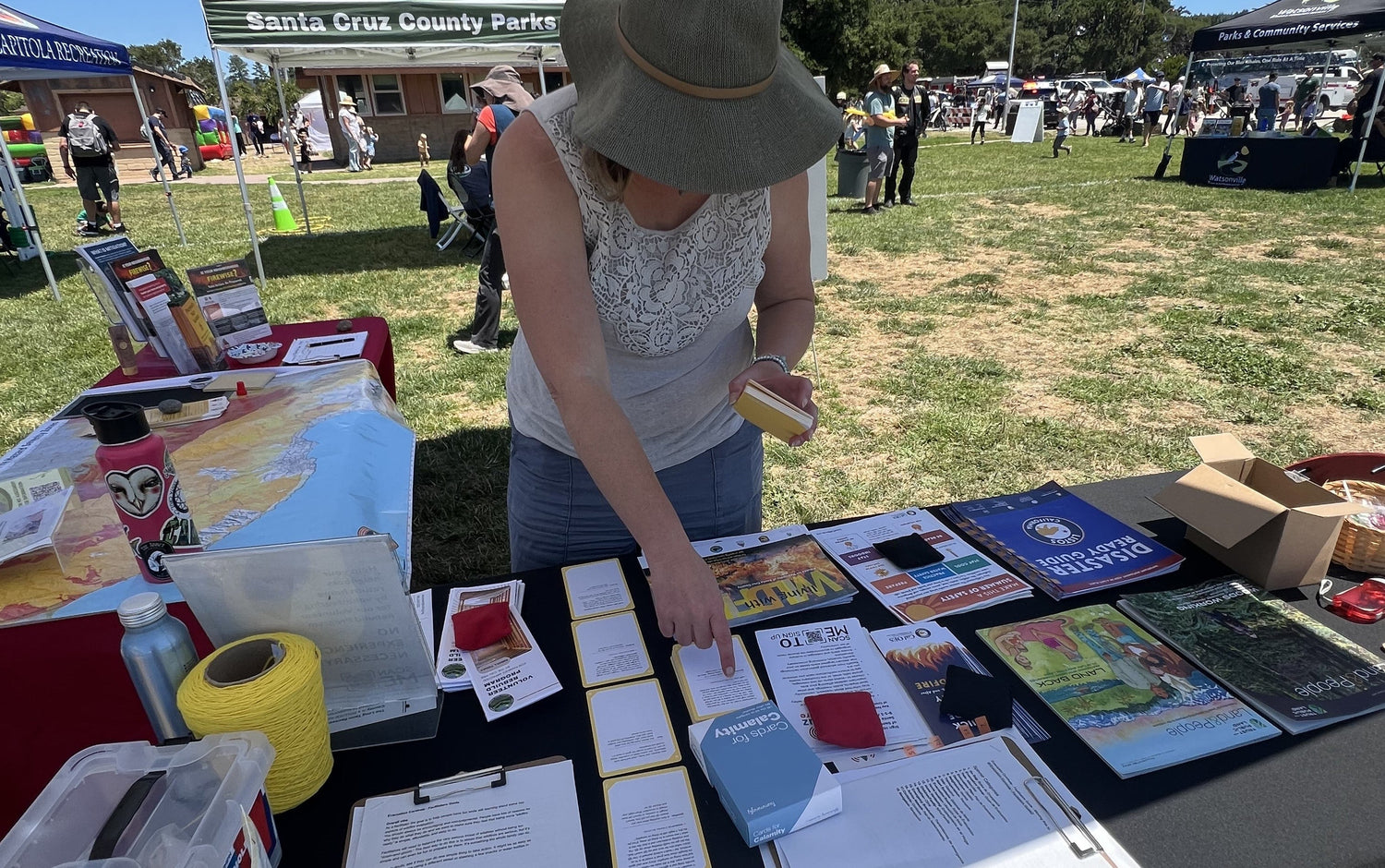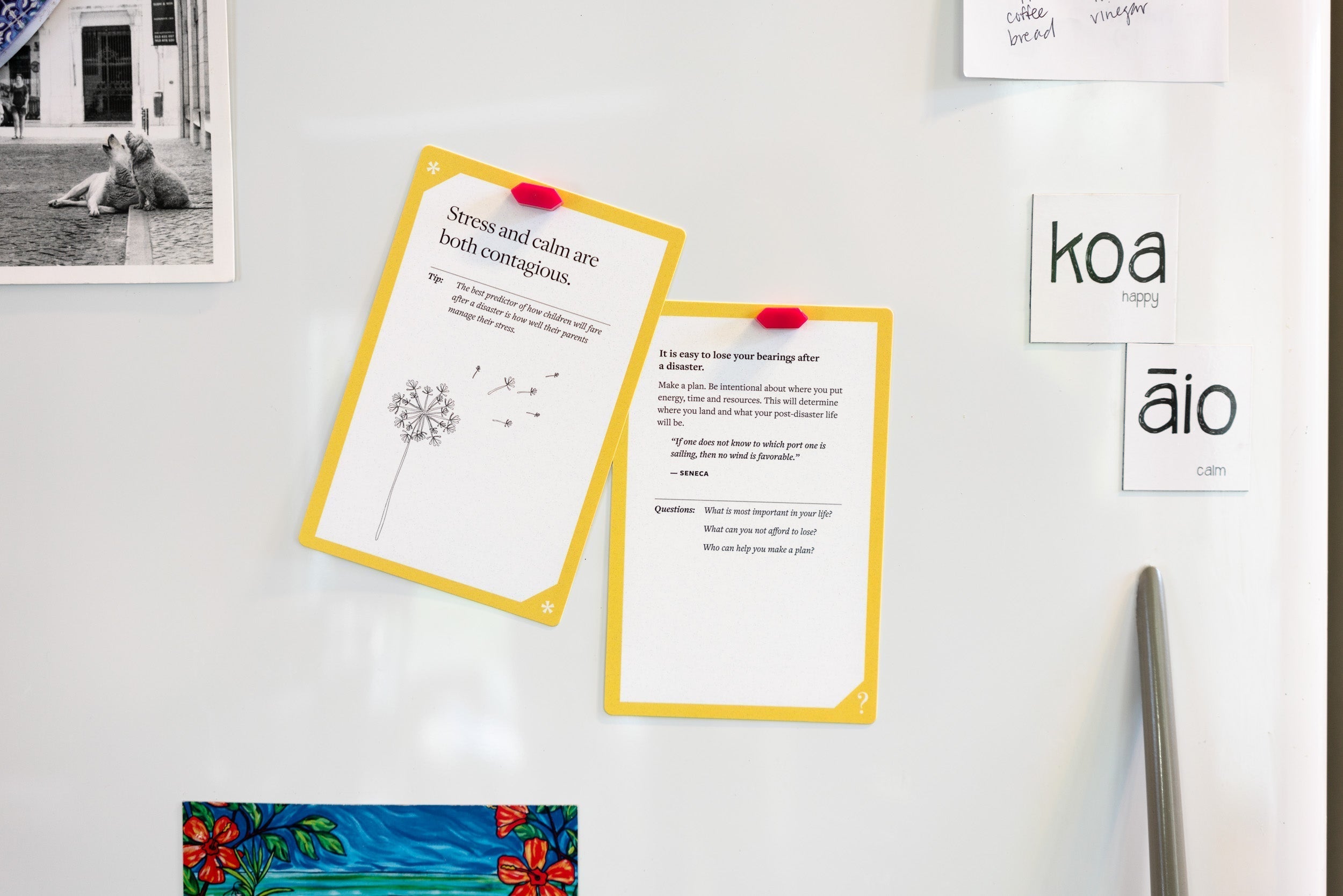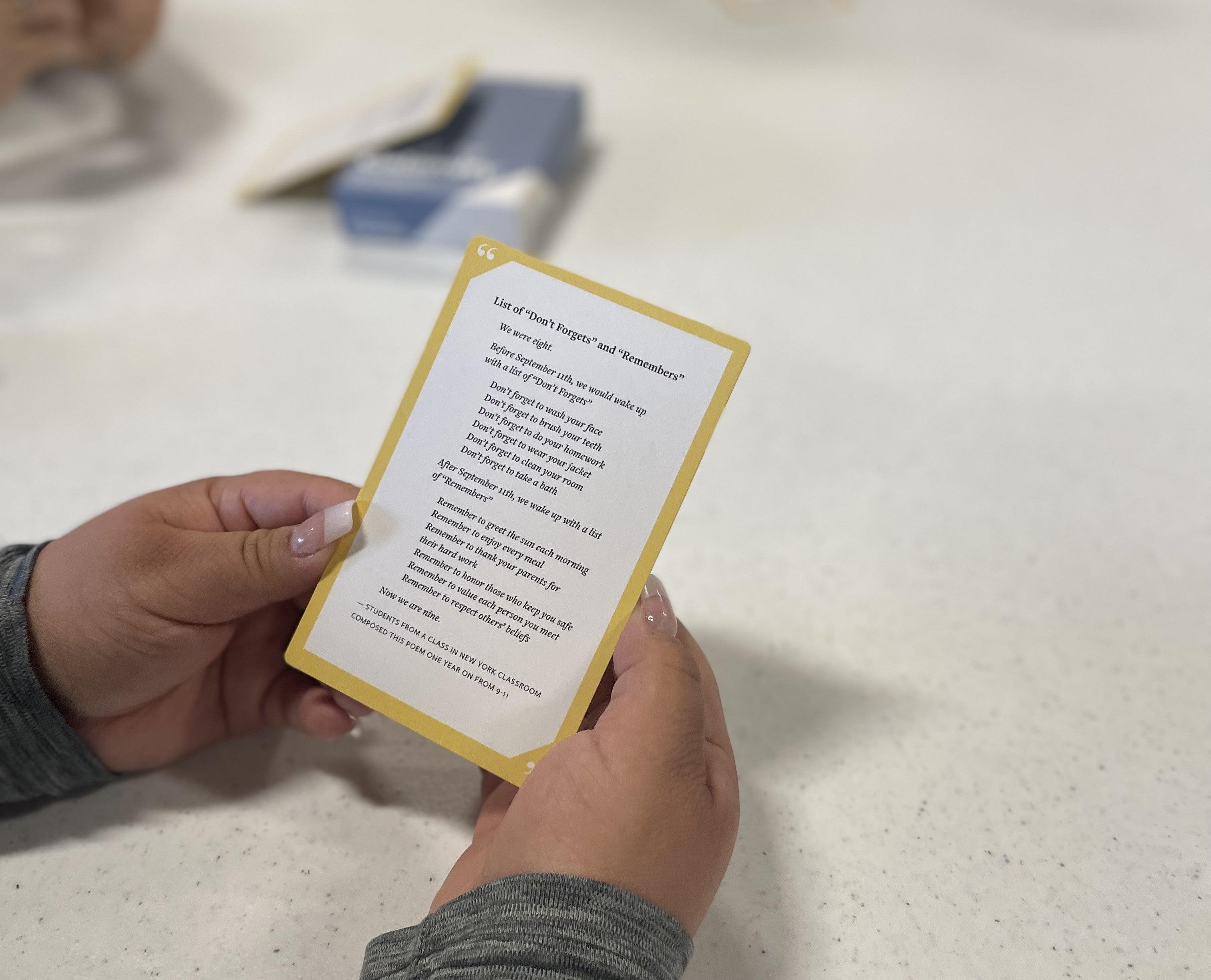In Santa Cruz County, California, recovery has taken many shapes—and many turns. From the devastating CZU Lightning Complex Fire in 2020 to the Atmospheric River flooding and bomb cyclone storms of 2023, the community has faced repeated waves of disruption, loss, and displacement.
For Tonje Wold-Switzer, Director of the Santa Cruz County Long Term Recovery Group, recovery has never been just about infrastructure. It’s about helping people find solid ground emotionally, even when their physical foundations have crumbled.
“Unless you have strong faith-based organizations involved, emotional and spiritual care can fall to the wayside. That’s what I was seeing in our community, and I wanted to do something about it.”
A partnership between Good360 and Hummingly brought a new layer of support to her team’s efforts: the Cards for Calamity. Designed to spark healing conversations in disaster-impacted communities, the cards offered something that had been missing—a simple, powerful way to acknowledge the invisible toll of crisis.
“The cards have been very, very helpful. I wanted our disaster case managers to be able to ask questions that go beyond ‘Do you have enough to eat?’ These cards open that door.”
At outreach events across the county, the Santa Cruz team has found innovative ways to use the decks. Whether someone has lost their home, narrowly escaped disaster, or simply lives in fear of what might come next, the cards offer an invitation: to pause, to reflect, and to talk.
“Even for people who haven’t been directly impacted, there’s a lot of fear. Everyone knows someone who has gone through disaster. The cards help us start conversations we might not otherwise have.”
The cards go with the team to community events, supporting outreach into disaster-impacted communities. If someone has been directly impacted, they receive a full deck to take home. If not, they’re invited to choose a single card that speaks to them—and many do.
The team also keeps a card deck at every client meeting, offering individuals the opportunity to reflect during visits, or take a card home and bring it back later for deeper conversation.
“It’s affirming. A card might prompt someone to say, ‘Wow, someone else felt this way too. It’s not just me.’ That moment matters. It’s often the beginning of emotional recovery.”
Tonje especially recalls one card that resonates with many parents:
“The best predictor of how children will fare after disaster is how well their parents manage their stress.”
It’s a message that hits home—and opens doors.
“That card alone brings up so much. It's a great conversation starter because people that have children are concerned and worried about how this has impacted them, what traces the disaster will leave for them, and how do I talk to them? And then we can explore their concerns, help parents manage their stress and access resources to support their children.”
In a world where recovery often focuses on bricks and budgets, Tonje’s work is a powerful reminder that emotional recovery is just as essential. That’s what makes tools like the Cards for Calamity such a vital part of the process.
“It’s the thing everyone is thinking about, but no one wants to think about. That’s why these cards matter.”
Through Hummingly’s partnership with Good360, communities like Santa Cruz are receiving more than resources—they’re receiving permission to feel, space to connect, and new pathways to healing. The Cards for Calamity also open the conversations that may lead to connection to further mental health services, reducing the stigma and barrier to access.
“We build a relationship with our clients. They trust us and know we're there to help them. It's not top down. Because it’s coming from us, they’re more likely to be open to conversation about connecting with further services, if they need them. The cards can be a bridge to help us explore that conversation.”
Whether in a quiet one-on-one visit, a bustling outreach event, or a community Facebook post, the Cards for Calamity are gently enabling emotional recovery and changing the conversation—one card, one connection, one conversation at a time.



